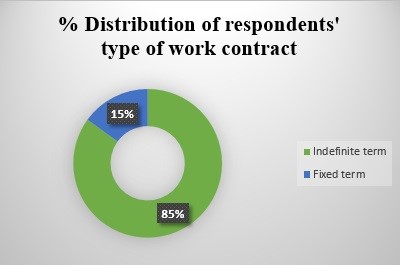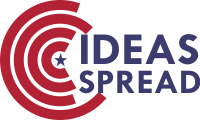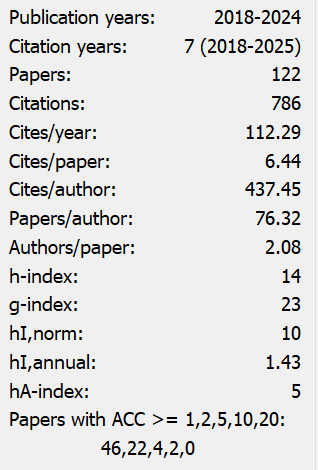Determining Perceived Work Performance and Self-efficacy Among High-school Teachers
Abstract
Nowadays, the concept of performance can be related to almost any field of activity, taking into consideration the fact that setting, achieving and even exceeding goals appear to be of constant interest for individuals involved in working activities. Additionally, research literature is rich in notions related to performance measurement, evaluation and management. The same interest in literature is met for the concept of teachers’ self-efficacy and evidence show these two concepts are strongly related one to the other. Hence, the current study aims to bring a new perspective for these topics by analyzing work performance and self-efficacy in the field of education employees, i.e. high-school teachers, and the extent to which they perceive their self-performance and self-efficacy levels. As the present paper focuses on determining the level of the previously mentioned concepts among high school teachers from Romania, the data were gathered through an online questionnaire, answered by 603 Romanian high-school teachers and later analyzed according to quantitative research methods. The results of this study, consistent with the methodology used and within the limitations, show a high level of both perceived work performance and perceived self-efficacy among the high-school teachers. These facts could be of great interest for educational stakeholders, fellow researchers and policy makers.
References
Akinbowale, M. A., Lourens, M. E., & Jinabhai, D. C. (2014). Employee performance measurement and performance appraisal policy in an organisation. Mediterranean Journal of Social Sciences, 5(9), 342-347. https://doi.org/10.5901/mjss.2014.v5n9p342
Bititci, U., Garengo, P., Dörfler, V., Nudurupati, S. (2012). Performance Measurement: Challenges for Tomorrow. International Journal of Management Reviews, 14(3), 305-327 https://doi:10.1111/j.1468-2370.2011.00318.x
Bourne, M. J., Smeltzer, S. C., & Kelly, M. M. (2021). Clinical teacher self-efficacy: A concept analysis. In Nurse Education in Practice (Vol. 52, p. 103029). Elsevier Ltd. https://doi.org/10.1016/j.nepr.2021.103029
Çapa, Y., Çakıroğlu, J., Sarıkaya, H. (2005). The Development and Validation of a Turkish Version of the Teachers’ Sense of Efficacy. Education and Science, 30(137), 74-81
Cook, J. B., & Mansfield, R. K. (2016). Task-specific experience and task-specific talent: Decomposing the productivity of high school teachers. Journal of Public Economics, 140, 51-72. https://doi.org/10.1016/j.jpubeco.2016.04.001
Duffin, L., French, B., Patrick, H. (2012). The Teachers' Sense of Efficacy Scale: Confirming the factor structure with beginning pre-service teachers. Teaching and Teacher Education, 28(6), 827-834, https://doi.org/10.1016/j.tate.2012.03.004
Fackler, S., Malmberg, L. E., & Sammons, P. (2021). An international perspective on teacher self-efficacy: Personal, structural and environmental factors. Teaching and Teacher Education, 99, 103255. https://doi.org/10.1016/j.tate.2020.103255
Fives, H., Buehl, M. (2009). Examining the Factor Structure of the Teachers’ Sense of Efficacy Scale. The Journal of Experimental Education, 78(1), 118-134. https://doi.org/10.1080/00220970903224461
Granziera, H., & Perera, H. N. (2019). Relations among teachers’ self-efficacy beliefs, engagement, and work satisfaction: A social cognitive view. Contemporary Educational Psychology, 58(February), 75-84. https://doi.org/10.1016/j.cedpsych.2019.02.003
Griffin, M. A., Neal, A., & Parker, S. K. (2007). A new model of work role performance: Positive behavior in uncertain and interdependent contexts. Academy of Management Journal, 50(2), 327-347. https://doi.org/10.5465/AMJ.2007.24634438
Heuven, E., Bakker, A. B., Schaufeli, W. B., Huisman, N., Perera, H. N., Granziera, H., McIlveen, P., Zee, M., Koomen, H. M. Y., Yakın, M., & Erdil, O. (2012). Profiles of teacher personality and relations with teacher self-efficacy, work engagement, and job satisfaction. Review of Educational Research, 58(April 2017), 981-1015. https://doi.org/10.1016/j.sbspro.2012.09.1013
Jafari, M., Bourouni, A., & Amiri, R. H. (2009). A new framework for selection of the best performance appraisal method. European Journal of Social Sciences, 7(3), 92-100.
Lung(Moladovan), M., IoanMoldovan, & Alexandra, N. L. (2012). Financing Higher Education in Europe: Issues and Challenges. Procedia - Social and Behavioral Sciences, 51, 938-942. https://doi.org/10.1016/j.sbspro.2012.08.266
Malmberg, L. E., Hagger, H., & Webster, S. (2014). Teachers’ situation-specific mastery experiences: teacher, student group and lesson effects. European Journal of Psychology of Education, 29(3), 429-451. https://doi.org/10.1007/s10212-013-0206-1
Ministerul Educatiei si Cercetarii (2018). Raport privind starea invatamantului preuniversitar din Romania 2017-2018. Retrieved from https://www.edu.ro/sites/default/files/Raport%20privind%20starea%20%C3%AEnv%C4%83%C8%9B%C4%83m%C3%A2ntului%20preuniversitar%20din%20Rom%C3%A2nia_2017-2018_0.pdf
Misu, S. I. (2019). How Do High School Students Perceive the Entrepreneurial Education. Proceedings of the International Conference on Business Excellence, 13(1), 945-961. https://doi.org/10.2478/picbe-2019-0083
Mişu, S. I. (2020). Indefinite vs. fixed-term work contracts: the impact over the teachers’ work-engagement. Proceedings of the International Conference on Business Excellence, 14(1), 893-905. https://doi.org/10.2478/picbe-2020-0085
Neely, A., Gregory, M., & Platts, K. (2005). Performance measurement system design: A literature review and research agenda. In International Journal of Operations and Production Management, 25(12). https://doi.org/10.1108/01443570510633639
OECD (2009). Teacher evaluation: A conceptual framework and examples of country practices. Paris: OECD. Retrieved from https://www.oecd.org/education/school/44568106.pdf
Perera, H. N., Granziera, H., & McIlveen, P. (2018). Profiles of teacher personality and relations with teacher self-efficacy, work engagement, and job satisfaction. Personality and Individual Differences, 120(September 2017), 171-178. https://doi.org/10.1016/j.paid.2017.08.034
Radu, C., Deaconu, A., Misu, S. I., & Triculescu, M. (2020). The Impact of Work Investment on Performance. Amfiteatru Economic, 22(14), 1103-1120. https://doi.org/10.24818/EA/2020/S14/1103
Rusu, G., Avasilcăi, S., & Huţu, C. A. (2016). Organizational Context Factors Influencing Employee Performance Appraisal: A Research Framework. Procedia - Social and Behavioral Sciences, 221, 57-65. https://doi.org/10.1016/j.sbspro.2016.05.090
Smith, M., Bititci, U.S. (2017). Interplay between performance measurement and management, employee engagement and performance. International Journal of Operations & Production Management, 37(9), 1207-1228. https://doi.org/10.1108/IJOPM-06-2015-0313
Soare, E. (2008). Educatia antreprenoriala.Ultima provocare a scolii. Bucuresti: V. & I. Integral
Tschannen-Moran, M., & Hoy, A. W. (2001). Teachers’ Sense of Efficacy Scale Instrument. Teaching and Teacher Education, 17(1), 783-805.


This work is licensed under a Creative Commons Attribution 4.0 International License.
Copyright for this article is retained by the author(s), with first publication rights granted to the journal.
This is an open-access article distributed under the terms and conditions of the Creative Commons Attribution license (http://creativecommons.org/licenses/by/4.0/).


























